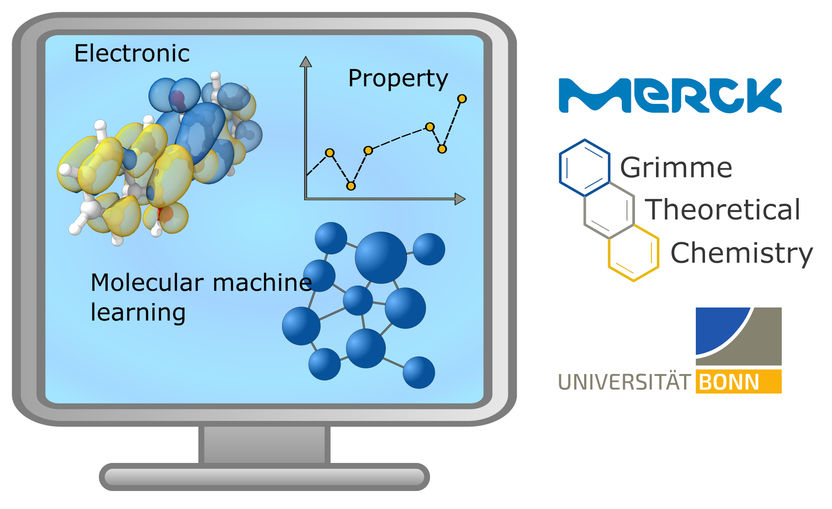Merck and Mulliken Center for Theoretical Chemistry Collaborate in Machine Learning Project
The three-year collaboration will focus on the development of new tools for computational chemistry modelling as well as new molecular representations
Advertisement
Merck announced a collaboration with the Mulliken Center for Theoretical Chemistry at the Rheinische Friedrich-Wilhelms-University of Bonn, Germany. The three-year collaboration will focus on the development of new tools for computational chemistry modelling as well as new molecular representations to advance the next generation of molecular machine learning.

Merck KGaA
“We are excited to work with Merck on this project, which will be beneficial for the company and the computational chemistry community in general. The close interaction with Merck’s scientists will help us to give the project and the resulting tools the right focus,” said Professor Stefan Grimme, Head of the Mulliken Center for Theoretical Chemistry and an internationally distinguished leader in theoretical chemistry and a member of the German National Academy of Sciences Leopoldina. The group led by Grimme has developed a plethora of methods and tools that are now widely used far beyond the computational chemistry community.
Merck is leveraging machine learning and artificial intelligence (AI) along all stages of its value chain. Through numerous initiatives and collaborations, the company aims to accelerate the life cycle of its products, break up silos and harness the power of data and digital. “Recent advances have shown the impact that molecular machine learning and AI in general can have in all chemistry-related areas, especially simulation and data-driven drug discovery, materials design and prediction of new formulations. With this collaboration, together we want to develop new molecular representations and computational tools that will help us in making drug candidate screenings faster, discover new compounds and predict the performance of materials,” said Jan Gerit Brandenburg, Head of Digital Chemistry at Merck.
Over the next three years, several PhD students from the Mulliken Center for Theoretical Chemistry will work with the Digital Chemistry team at Merck to identify methods applicable to the company’s entire portfolio of chemicals and pharmaceuticals that would benefit from molecular machine learning techniques. All methods and codes developed within the program will be open source and will thus also benefit the broader scientific community. The program is partly embedded in the German Research Foundation’s (DFG) Priority Programme on Molecular Machine Learning (SPP 2363).
























































